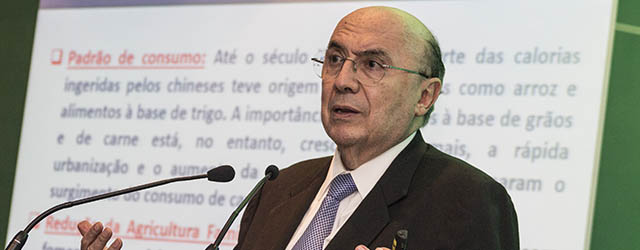Well known for his caution, Brazil Finance Minister Henrique Meirelles is well aware of the enormity of his nation’s fiscal hole. Brazil is likely to report a primary deficit of $36 billion this year, instead of the $6.8 billion surplus previously forecast.

He also knows it will take a massive effort to stem the tide of public debt. Doing so is the top priority for Meirelles, who also faced a chaotic economic situation when he took the helm of Brazil’s Central Bank in 2003.
But the situation is very different now. Brazil is in the midst of a severe recession as its government has entered a period of unprecedented turmoil.
As the impeachment process against leftist president Dilma Rousseff continues, Meirelles finds himself the newly appointed finance minister of an interim government led by conservative former vice president Michel Temer. Rousseff was suspended for 180 days last month, and there may be no clarity on her political future until September. Her original term expires on December 31, 2018.
Meirelles is seen as the key element of the new government, one who will hold significant sway over the Central Bank. On May 17, the government named Ilan Goldfajn, the MIT-trained chief economist for Brazil’s Itaú Unibanco, as the next president of the Central Bank.
Meirelles, in his first days as minister, he said he was committed to unraveling the Rousseff administration’s messy public accounts, unearthing subsidies and tax exemptions, and that he expects “fiscal skeletons” to be popping out of the closets at state banks. He will also need to deal with bankrupt states and their debt to the national Treasury.
“These are numbers that I am particularly interested in; I am quite concerned about them,” he said. The minister hasn’t laid out a specific policy agenda yet. But he signaled that he doesn’t plan to abandon a push to raise certain taxes that are unpopular with business. He also promised to examine social security and labor reforms unpopular with unions but supported by the private sector.
According to Brazilian tax expert Raul Velloso, the market shouldn’t worry about rash decisions on tax policy. The new minister is known for taking his time and for encouraging exhaustive debates before announcing new measures.
“Meirelles will cook the main issues slowly before making a decision,” said Velloso. “He doesn’t want to repeat the mistakes of his predecessors or let this government be blamed for previous decisions.”



